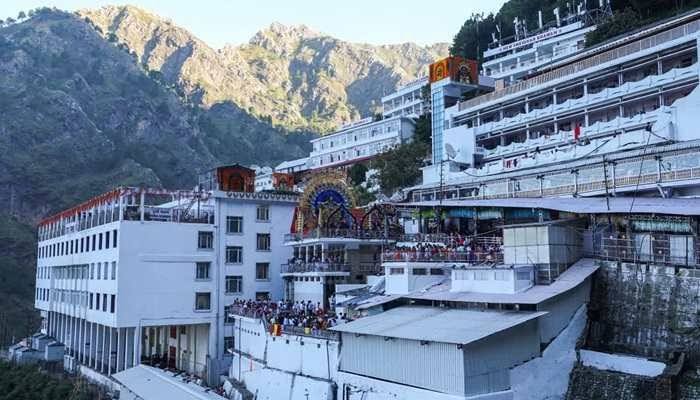 Image Source: Kashmir Tour Bazaar
Image Source: Kashmir Tour Bazaar
In a country where onions are a staple in nearly every kitchen, one town stands apart with a rule that surprises even seasoned travelers. Katra, located in the union territory of Jammu and Kashmir, is the only place in India where onions and garlic are completely banned. They are neither grown, sold, nor served in any form. This unique restriction isn’t driven by agriculture or economics—it’s rooted in deep spiritual beliefs and the town’s sacred identity as the gateway to the revered Mata Vaishno Devi shrine.
Key Highlights Of The Onion Ban
Katra’s onion-free status is not a casual preference—it’s a strict, community-wide practice upheld by residents, businesses, and local authorities alike.
• Onions and garlic are not cultivated anywhere in or around Katra
• Local markets, grocery stores, and vegetable vendors do not stock or sell them
• Hotels, restaurants, and dhabas serve only sattvic food, free from onion and garlic
• The ban is enforced to maintain spiritual sanctity for pilgrims visiting the Vaishno Devi temple
This makes Katra a rare culinary landscape in India, where the absence of onions doesn’t compromise flavor but instead enhances the purity of meals.
The Spiritual Reason Behind The Ban
The root of this tradition lies in Hindu philosophy. Onions and garlic are classified as tamasic foods, believed to promote lethargy, agitation, and impurity. In contrast, sattvic foods are considered pure, light, and conducive to spiritual growth. Since Katra is the starting point for the 14-kilometer pilgrimage to the Mata Vaishno Devi shrine, maintaining a sattvic environment is considered essential.
1. Tamasic foods are avoided during prayer, fasting, and religious rituals
2. Pilgrims are expected to consume sattvic meals to uphold spiritual discipline
3. The ban reinforces the sacred atmosphere of the pilgrimage route
4. Local residents and vendors actively support and honor the tradition
This spiritual discipline has become a defining feature of Katra’s identity, making it not just a religious hub but a symbol of collective devotion.
Dining Without Onions: What’s On The Plate
Despite the absence of onions and garlic, food in Katra is far from bland. Local chefs and home cooks have mastered the art of sattvic cooking, using alternative ingredients and techniques to create flavorful dishes.
• Asafoetida (hing), cumin, ginger, and fresh herbs replace the pungency of onions
• Dals, sabzis, and chutneys are prepared with subtle spice blends and fresh produce
• Pilgrims and tourists often praise the food for its lightness and digestibility
• Sweet dishes like halwa and kheer are popular offerings at temples and eateries
The culinary experience in Katra is a testament to how tradition and taste can coexist beautifully.
Community Participation And Cultural Pride
The onion ban is not enforced by law but by shared values. Locals take pride in preserving the sanctity of their town, and even newcomers quickly adapt to the norms. Shopkeepers gently guide visitors toward sattvic alternatives, and restaurants prominently display their onion-free menus.
• Residents view the ban as a spiritual responsibility, not a restriction
• The tradition is passed down through generations and respected by all age groups
• Visitors often leave with a deeper appreciation for the town’s discipline and hospitality
This collective commitment has helped Katra maintain its unique status without conflict or resistance.
Conclusion: A Town That Chooses Purity Over Popularity
Katra’s onion ban may seem unusual in a country that celebrates spice and flavor, but it reflects a deeper philosophy—one that values spiritual clarity over culinary convention. As thousands of pilgrims pass through its streets each year, the town continues to uphold its sacred promise: to offer nourishment that feeds both body and soul. In doing so, Katra reminds us that sometimes, what’s left out of a recipe is just as meaningful as what’s put in.
Sources: MSN India, Lokmat Marathi News, India TV News
Advertisement
Advertisement






